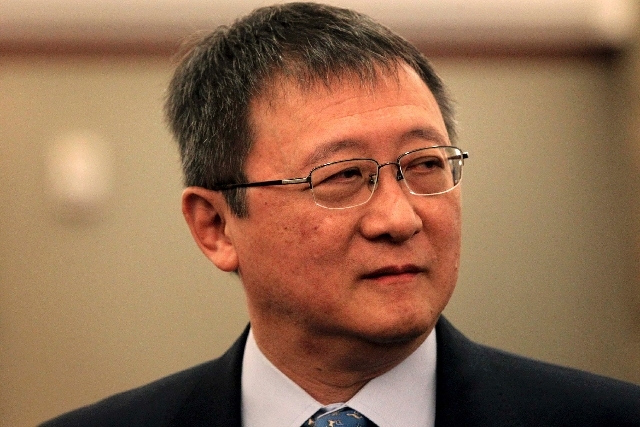Suen attorney draws comparison in closing argument
For more than a month, jurors in the Richard Suen trial have heard a lengthy roster of Chinese names, customs, and sections of constitutional law, all in a jumbled time sequence.
But attorney John O’Malley, in his closing argument on Thursday that Suen is owed $328 million for his consulting work to get Las Vegas Sands Corp. its profitable foothold in Macau, chose to draw an analogy on a much smaller scale and closer to home.
What if a somebody hired a real estate agent to sell his home, O’Malley said, and secured a buyer at $500,000 after a couple of Sunday open houses.
But when the agent came to collect his standard 6 percent commission, the buyer balked.
“Yeah, you did something,” said O’Malley’s mythical seller. “But I got to tell you, this house sold itself. It’s a great house.”
Instead of the $30,000 commission, the buyer offers to pay $1,000 based on hours put into the sales process. When the agent balks and turns down a job offer with no guaranteed contract, the buyer makes his final offer: “Sue me.”
“That is the story of this case,” said O’Malley. “That’s what you’ve heard since April 3.”
O’Malley repeatedly referred back to his story as he recounted, in chronological order, the story of Suen’s involvement with Sands while company Chairman and CEO Sheldon Adelson sat in the audience in Clark County District Court.
O’Malley recounted Suen’s ties to Sands starting with mid-2000 introductory meetings with Adelson in Hong Kong and Macau. This led to a recitation of Suen’s version of the relationship now familiar to the jurors:
— Suen and several associates came to Las Vegas for the first time in late 2000 to meet with Sands executives. Then, Suen said, he conceived of pushing Sands’ prowess in the convention and meeting sector as the winning strategy in Macau because Strip rivals were larger and had more experience in gaming.
— The mid-2001 meetings with top Chinese government officials in Beijing, particularly vice premier Qian Qichen, who had responsibility for Macau. The meeting put the central government behind the Sands bid, that was ultimately communicated to the Macau officials that ultimately granted the gaming concessions in 2002.
O’Malley acknowledged there was no “secret government document” to back that claim, but different pieces of testimony that the message made it to Macau and its chief executive Edmund Ho.
— The bidding process that saw the Sands bid stumble a couple of times but ended with Sands receiving a subconcession in late 2002 that functions almost identically to a full concession. Adelson testified that Sands’ work alone get the company into Macau.
Contact reporter Tim O’Reiley at toreiley@reviewjournal.com or 702-387-5290.




























